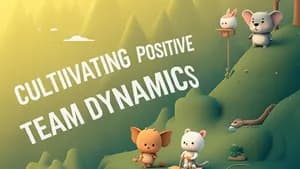Welcome, students and parents, to a discussion about one of the most powerful yet often misunderstood tools for growth, both in academic settings and in life: supportive challenge. You might hear the word "challenge" and immediately think of conflict or disagreement, and while those can be part of it, supportive challenge is something far more profound and positive. It’s about creating an environment where everyone feels safe enough to question, to offer different perspectives, and to gently push each other's thinking, all with the ultimate goal of making ideas stronger and learning deeper. Think of it not as an argument to win, but as a collaborative exploration to uncover the best possible outcome. This healthy form of interaction is not just about being polite; it's about building genuine trust and significantly boosting collective performance, whether it's on a school project, a debate team, or even within your family discussions.
I’ve spent many years observing how students learn and collaborate, and one of the most transformative shifts I’ve seen occurs when they embrace the concept of supportive challenge. It moves beyond simply dividing tasks and completing them; it elevates group work from mere cooperation to true synergy. When you learn to engage in this way, you're not just completing assignments; you're actively cultivating critical thinking, developing sophisticated communication skills, and, perhaps most importantly, building resilience and confidence in your own ideas. It’s a skill that will serve you incredibly well, not just through your school years, but far beyond, into college, careers, and all your personal relationships. This article will guide you through understanding, practicing, and benefiting from supportive challenge, making your learning journey more enriching and your team experiences far more productive.
Understanding Supportive Challenge: More Than Just Disagreement
Supportive challenge is fundamentally different from simple criticism or unconstructive disagreement. True supportive challenge is rooted in respect and a shared commitment to excellence. It’s about challenging an idea, a method, or an assumption, rather than challenging the person presenting it. When you engage in supportive challenge, your aim isn't to prove someone wrong, but to help an idea evolve and improve, often by offering a different viewpoint, asking clarifying questions, or suggesting an alternative approach. It’s a collaborative effort to find the strongest path forward, recognizing that the best solutions often emerge from a thorough examination of multiple perspectives.
Imagine you're working on a history project with a classmate. They propose an outline for your presentation. Instead of just nodding along, even if you see a potential weakness, supportive challenge involves saying something like, "That's a great start, and I especially like how you've organized the first section. I'm wondering if adding a counter-argument to this specific point might make our argument even more robust, showing we've considered all sides?" Notice the tone: it's respectful, acknowledges the positive, and frames the suggestion as a way to enhance the existing idea, not tear it down. This kind of interaction fosters an environment where ideas are rigorously tested, not just accepted at face value, leading to higher quality work and deeper understanding for everyone involved. It encourages critical thinking – asking not just

